AN ASIAN MP has spoken of her safety fears, saying, “we didn’t sign up to have our children burying our bodies”, as police and security authorities review security for parliamentarians following the fatal stabbing of Sir David Amess last week.
Eastern Eye spoke to Asian and black MPs who revealed that they had received abuse in person and online while serving their constituents.
Their revelations come after the murder of the Conservative MP Sir David, who was stabbed multiple times while holding a constituency surgery in Leigh-onSea last Friday (15). A 25-year-old man was arrested on the scene on suspicion of murder.
It is the second time in recent years that a sitting MP has been killed. Labour MP Jo Cox was shot and stabbed by a far-right activist in June 2016, outside a library where she was about to hold a constituency surgery.
During a memorial in the House of Commons for Sir David on Monday (18), prime minister Boris Johnson said the manner of his death would “not detract from his accomplishments as a politician or as a human being”.
The murder has prompted questions about politicians’ safety and what should be done to address the growing problem of online hate.
Labour’s Dr Rosena AllinKhan said MPs were “used to receiving barrages of abuse” and spoke of the fear that someone could attack and kill her.
“(MPs) sign up to serve the public and we understand that comes with [dealing with] people who can be very distressed and sometimes abusive,” she told Eastern Eye shortly before the memorial on Monday.
“But we didn’t sign up to have our children burying our bodies.” Preet Kaur Gill, the Labour MP for Birmingham Edgbaston, had been holding a surgery at the same time as when Sir David was murdered last Friday.
She described his death as “an attack on our democracy”.
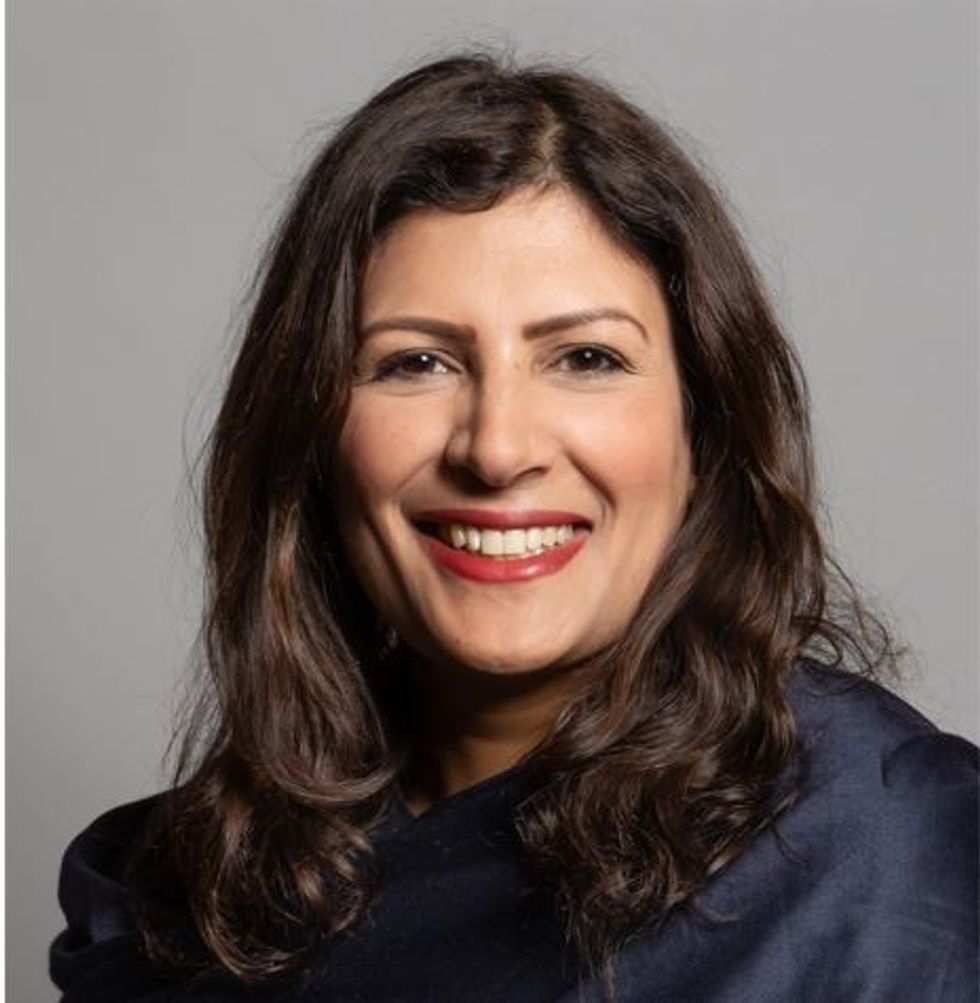
“No public servant going about their job should ever, ever feel their safety is at risk,” Gill said. “(Sir David is) never going to return to his family, and he never thought that going about the very thing he loved was going to be the end of his life.”
Gill believes abuse toward MPs has been normalised. “It’s almost like it’s part of the job,” she said.
She has required police presence twice in her surgery, due to threats made toward her and her staff. When she was initially elected as a MP in 2017, Gill said she would attend events on her own. Now, she is very conscious of always having her staff with her.
“I’m much more vigilant in terms of where we are, the location and safety elements of that as a result of what’s happened,” she said.
Following Sir David’s death, Gill revealed that she had a conversation with her family regarding her safety. The Asian MP said it was important to remember that the threats did not just impact MPs, but their family and loved ones too.
“It isn’t just about us – it’s about our families, and what they are having to go through and the risks that they are part of because of our jobs,” she said. “We have to think about the risk to them as well.”
Allin-Khan agreed that she worries about the impact on her children. She recalled an incident when a “distressed” individual found her home address and came “banging on her door”. Her children were in the house at the time and were “very stressed” by the incident.
“I fear for my children,” admitted AllinKhan, who was elected to parliament on the same day Cox was murdered. “I just really worry about them. You do think about what if somebody comes (and attacks you) when you’re with your kids.”
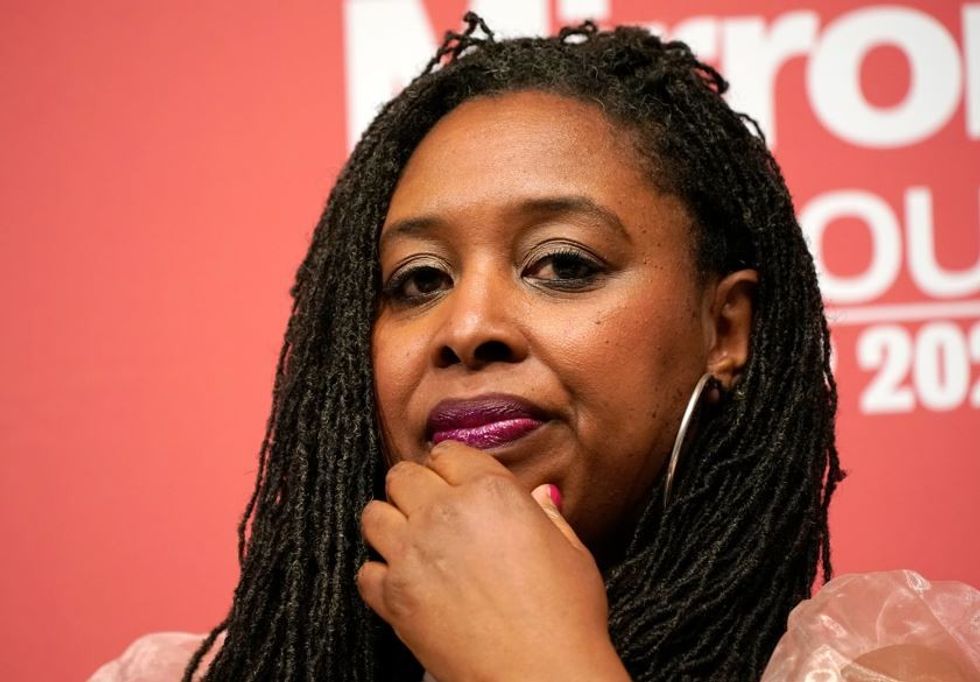
Dawn Butler, the Labour MP for Brent Central in north London, also recalled several incidents when she has been threatened. Her office has been broken into and bricks thrown through the window; she has had numerous abusive telephone calls in the early hours of the morning; and she has been attacked with a golf club in her constituency office.
In 2019, a woman received a three-month prison sentence after she followed Butler on a train and threatened to kill her.
Last summer, Butler closed her constituency office due to an escalation in threats.
“It wasn’t just risking my safety – it was risking the safety of everybody who worked for me, and I couldn’t guarantee their safety,” Butler told Eastern Eye.
Even while she is not working, Butler said she still feels unsafe.
“I am recognised wherever I go – whether I’m eating in a restaurant and going to see friends, I feel quite unsafe,” she admitted.
Tan Dhesi, the Labour MP for Slough, fears the level of abuse faced by MPs could potentially deter others from entering parliament.
“I think it will put off good people from entering politics, especially women and people from ethnic minorities, as we unfortunately get targeted more,” said Dhesi, who became Britain’s first turbaned Sikh MP in the 2017 general election.
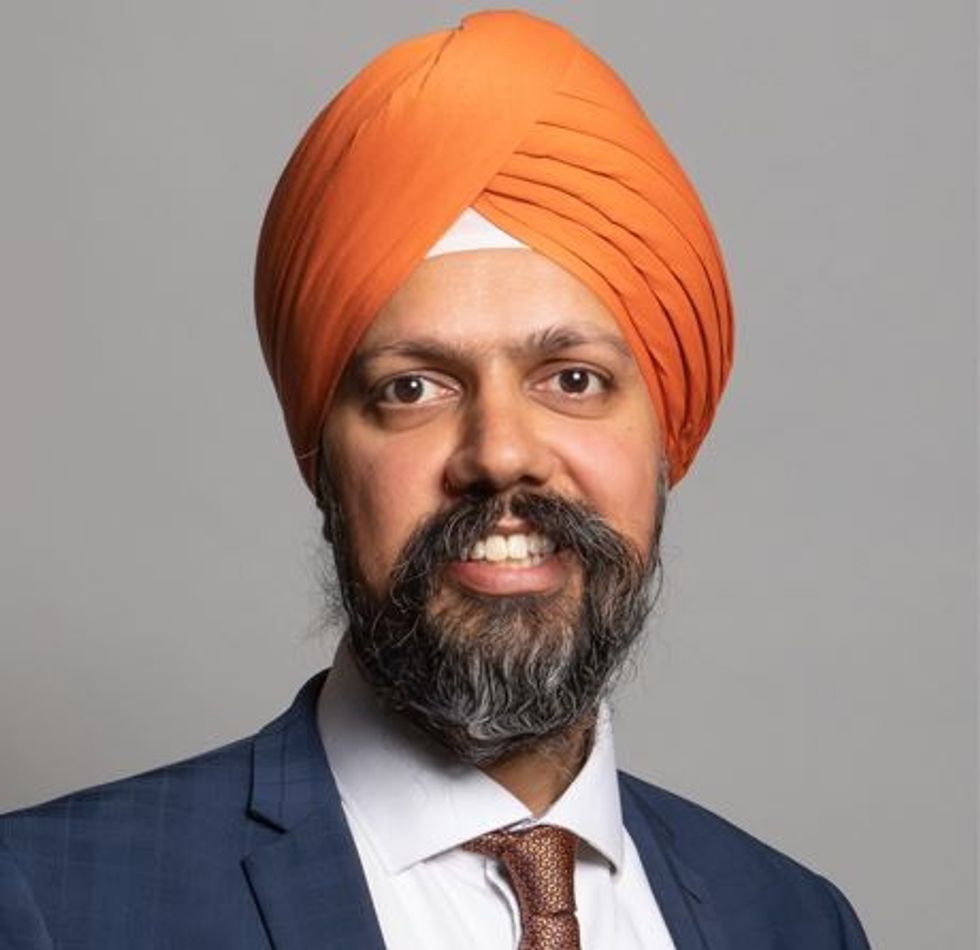
Research by Amnesty in 2019 revealed that ethnic minority female MPs received a disproportionate amount of abuse on social media.
Diane Abbott, who became the UK’s first black female MP in 1987, was the target of almost a third (31.61 per cent) of all abusive tweets analysed.
Gill agreed that female MPs were disproportionately targeted, especially on social media. For the sake of her mental health, she said she does not engage with trolls and immediately blocks them.
“Twitter can be a very toxic environment,” she said. “There are so many people hiding behind false names and false Twitter handles, you never know who you’re engaging with.”
She said the lack of action by social media companies was “really concerning”.
Butler also noted how the rise of social media has changed the level of abuse faced by MPs. She agreed social media firms needed to be held responsible for the content on their platforms.
Dhesi has also experienced death threats and has had to call the police for assistance in the past. His office takes several security precautions, including using CCTV cameras, silent alarms, and panic buttons.
Dhesi said, however, that he would like to be able to serve his constituents without the need for police protection.
He worried that extra security measures could potentially create distance between politicians and their local community.
“We have got a very special democracy in the UK, where constituents have direct access to their MPs – that is unheard of in many countries around the world,” Dhesi explained. “If we don’t dial down the abuse and the (abusive) rhetoric in our society, all it will do is to create more obstacles or more distance between constituents and their MPs.”
Echoing Dhesi’s sentiments, Gill said lawmakers did not want to restrict their duties by not meeting the local community face-to-face.
“Part of the thing we all love is engagement with our constituents, meeting them face to face, engaging with them, connecting with them and building those relationships,” she said. “It’s very difficult to do that virtually.
“Finding a measure that keeps MPs safe but still enables us to do constituency work is going to be really important.”
Asked if she would consider constant police protection, Allin-Khan said she would do so as “it is a very scary time to hold public office”.
“But it’s not just about (having protection at) surgeries, or at (political) events – who’s going to protect us when we do a school run or go to the shops?” she added.
“It’s not a one-size-fits-all approach. We can have all the alarms and cameras in the world, but it isn’t going stop someone harming us if they really want to.”
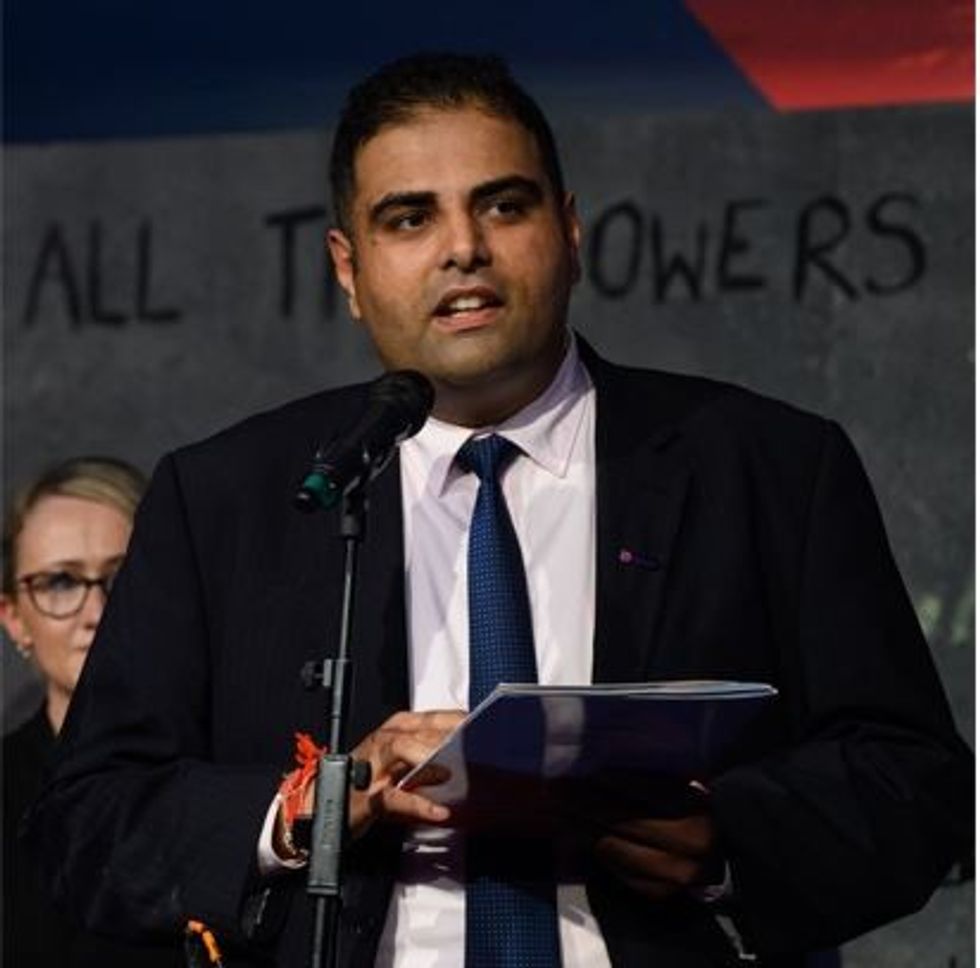
Navendu Mishra, the Labour MP for Stockport in Greater Manchester, said Sir David’s death has made him reconsider his own safety and that of his staff. He has been the target of racial abuse – although he admitted his team tended to hide the worst messages from him.
“I’ve had people telling me to go back to Iraq,” said Mishra, who is of Indian heritage. “However, I can’t say I get the worst of it – I have other colleagues who get a lot more abuse than me. But abuse shouldn’t be tolerated by anyone, not just in public office, but people in customer service and frontline roles. Abuse is not part of the job.”
Mishra said his office has a high-tech security system, including silent alarms and an intercom system.
After the death of Sir David, Mishra said he spoke to the chief superintendent of his local area in Greater Manchester.
Police have increased patrols around his constituency office and home. Downing Street confirmed that MPs had been contacted by police in order to review security.
Asked if he would take police protection, Mishra said he was “conflicted”.
“As it stands, I wouldn’t, but it’s better to be safe than sorry,” he said. “But what’s happened on Friday (Sir David’s murder) is deeply troubling.
“It’s tragic for Sir David’s family, for his staff members, for his community, and we need to make sure something like this is never ever repeated.”
However, Gill said there is an inconsistency between police forces and the contact they have with MPs. Just recently, a far-right activist was arrested in her local area, but she found out via the media.
“I shouldn’t have to find that out from the newspaper, I should have been informed by the police,” she said.
Allin-Khan, who is Muslim and of mixed-race heritage, said most of the abuse she receives is racist. She was elected to her Tooting seat in a by-election after Sadiq Khan, now the mayor of London, resigned. Reflecting on the by-election, AllinKhan called it “brutal”.
“There was a lot of hate directed at me from the start, a lot of racially charged hatred, so I’m sad to say I’ve actually been used to it from the beginning,” she said.
“But I think it’s also really important to say that it’s not new to me, sadly.”
The MP said she could recall instances of racism from when she was a young child, including being attacked as a child in a park when out with her Pakistani father. Allin-Khan, who is a qualified doctor, also said she has had patients turn her away because she is not white.
“I’ve had people telling me that they don’t want to be treated by me (because of my colour),” she said. “So, sadly, although with a bigger platform comes more abuse, it is not a new thing.”
Asked if she would ever reconsider her role in politics, Allin-Khan said she was determined to continue.
“I have not reconsidered being an MP any more,” she said. “I think the only way we fight this is by continuing to fight for our democracy.”
Dhesi agreed his family had shown concern over his parliamentary role, but he does not want to stand down either.
“I want to carry on as an MP,” he said. “I want to work for a fairer and more socially just society. I can only do that if I’m putting myself forward for election and being out there, conveying my views in parliament, in the media, and on social media and further beyond.
“But the level of concern among family members of MPs is intense, because nobody knows if this is going to happen to another one of our colleagues or even me.”
Rosie Carter, who is head of policy at Hope Not Hate, an antifascism campaign group, said Sir David’s murder was a “devastating example of how extreme hate takes lives, but also a shocking reminder of the risks that elected members face every day”.
“For a long time, we have seen a swelling of anti-politician sentiment grow into the mainstream,” Carter told Eastern Eye.
“... Extreme language has become normalised, with MPs labelled as ‘traitors’ and accused of ‘betrayal’ across the front pages of national newspapers.
“The protection of our MPs needs to become a top priority, as we have seen how easy it is for security to sometimes fall through the gaps of parliamentary or local policing.”

















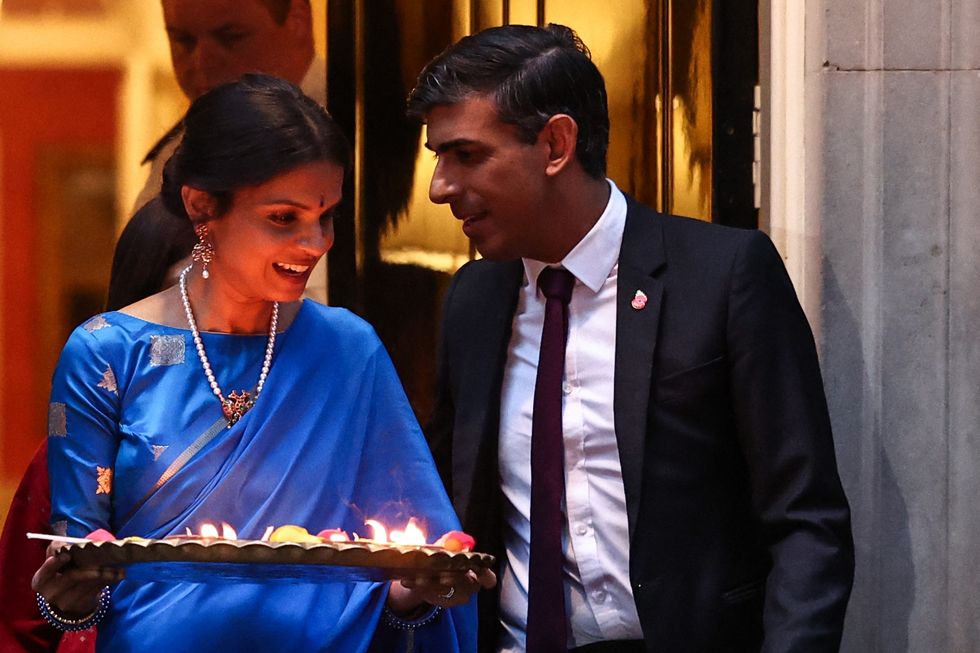 Rishi Sunak and Akshata Murty. (Photo by HENRY NICHOLLS/AFP via Getty Images)
Rishi Sunak and Akshata Murty. (Photo by HENRY NICHOLLS/AFP via Getty Images) 

